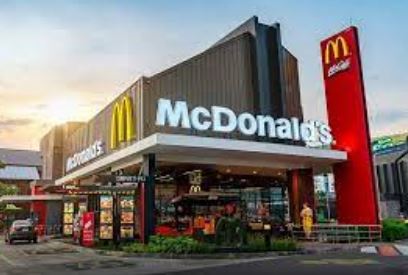McDonald’s Corporation, one of the world’s largest fast-food chains, operates in a complex and ever-changing business environment.
In addition to market mcdonalds survey dynamics and consumer preferences, environmental factors play a significant role in shaping the company’s operations and strategies.

This article explores the various environmental factors that affect McDonald’s Corporation and examines how the company responds to these challenges.
Operating globally requires McDonald’s to strike a balance between global standardization and local adaptation.
While the company maintains consistent quality and processes worldwide, it also recognizes the importance of tailoring offerings to local tastes and preferences.
Climate Change and Sustainability
The Impact of Climate Change on McDonald’s
Climate change poses significant risks to various industries, including the food sector.
As temperatures rise and weather patterns become more unpredictable, McDonald’s restaurants faces challenges such as supply chain disruptions, increased food production costs, and changing customer preferences.
Erratic weather conditions can affect the availability and quality of key ingredients, leading to potential operational challenges.
Sustainable Sourcing and Packaging
To mitigate the impact of climate change and promote sustainability, McDonald’s has implemented several initiatives.
The company aims to source ingredients responsibly, focusing on sustainable agriculture practices and reducing deforestation.
Furthermore, McDonald’s is actively working to enhance packaging sustainability by minimizing waste and using eco-friendly materials. These efforts align with the company’s commitment to reducing its environmental footprint.
Regulatory Environment
Health and Safety Regulations
Operating in the food industry requires strict adherence to health and safety regulations.
McDonald’s must comply with regulations related to food handling, storage, and preparation to ensure the well-being of its customers. These regulations aim to prevent foodborne illnesses and maintain high standards of hygiene across all McDonald’s restaurants.
Food Quality Standards
In addition to health and safety regulations, McDonald’s must meet stringent food quality standards.
The company is committed to providing safe and nutritious food to its customers.
McDonald’s carefully sources its ingredients and implements quality control measures to maintain consistent standards throughout its global supply chain.
Labor Laws and Employment Practices
McDonald’s operates in multiple countries, each with its labor laws and regulations.
The company must adhere to these laws to ensure fair treatment of its employees, including wages, working hours, and occupational safety.
McDonald’s places importance on providing a safe and inclusive working environment and complying with labor standards.
Energy Consumption and Efficiency
Reducing Carbon Footprint
As part of its environmental stewardship, McDonald’s strives to reduce its carbon footprint.
The company has been actively investing in energy-efficient equipment, such as high-efficiency kitchen appliances and LED lighting. Additionally, McDonald’s explores renewable energy options and encourages franchisees to adopt sustainable practices to minimize energy consumption.
Energy-Efficient Practices and Technologies
To enhance energy efficiency, McDonald’s has implemented various practices and technologies across its restaurants.
These include optimizing heating, ventilation, and air conditioning systems, installing energy management systems, and utilizing smart lighting solutions.
These efforts not only reduce environmental impact but also contribute to cost savings and operational efficiency.
Waste Management
Minimizing Food Waste
Reducing food waste is a critical aspect of McDonald’s environmental strategy. The company aims to minimize waste at every stage, from production to consumption. McDonald’s employs inventory management techniques, such as demand forecasting and accurate portion control, to minimize food waste. Additionally, the company has partnered with food banks and organizations to redistribute surplus food to those in need.
Recycling and Waste Reduction
McDonald’s promotes recycling and waste reduction in its restaurants. The company encourages customers to use recycling bins and offers packaging made from recyclable materials. Furthermore, McDonald’s collaborates with suppliers and waste management partners to find innovative solutions for recycling and reducing packaging waste.
Water Management
Water Conservation Measures
Conserving water is a priority for McDonald’s. The company implements various measures to minimize water consumption in its operations. This includes using water-efficient technologies, optimizing water usage in kitchen processes, and promoting employee awareness about water conservation.
Responsible Water Usage
Beyond conservation, McDonald’s focuses on responsible water usage. The company monitors water quality and ensures compliance with relevant regulations. McDonald’s also engages with local communities to support water conservation initiatives and protect water resources.
Public Perception and Social Responsibility
Addressing Consumer Concerns
Public perception plays a crucial role in McDonald’s success. The company actively listens to its customers and addresses their concerns regarding environmental issues. McDonald’s aims to be transparent about its sustainability efforts, communicating progress and initiatives to build trust with consumers.
Community Engagement and Philanthropy
McDonald’s recognizes its responsibility to give back to the communities in which it operates.
The company engages in philanthropic initiatives, supporting education, healthcare, and environmental programs. By actively participating in community projects, McDonald’s demonstrates its commitment to social responsibility.
Conclusion
McDonald’s Corporation operates within a dynamic business environment influenced by various environmental factors. From climate change and sustainability to regulatory compliance and public perception, the company recognizes the importance of addressing these factors to ensure long-term success. By implementing sustainable practices, adhering to regulations, managing energy and waste efficiently, and engaging with communities, McDonald’s continues to adapt and thrive in an ever-changing world.
FAQs
- Q: Is McDonald’s committed to sustainability? A: Yes, McDonald’s is committed to sustainability and has implemented various initiatives to reduce its environmental impact.
- Q: How does McDonald’s manage its waste? A: McDonald’s minimizes food waste through inventory management techniques and promotes recycling and waste reduction in its restaurants.
- Q: What measures does McDonald’s take to conserve water? A: McDonald’s implements water-efficient technologies, optimizes water usage in its operations, and engages in responsible water usage practices.
- Q: How does McDonald’s address consumer concerns regarding the environment? A: McDonald’s actively listens to its customers and communicates its sustainability efforts transparently to address consumer concerns.
- Q: What philanthropic initiatives does McDonald’s undertake? A: McDonald’s engages in philanthropic initiatives supporting education, healthcare, and environmental programs in the communities it operates in.